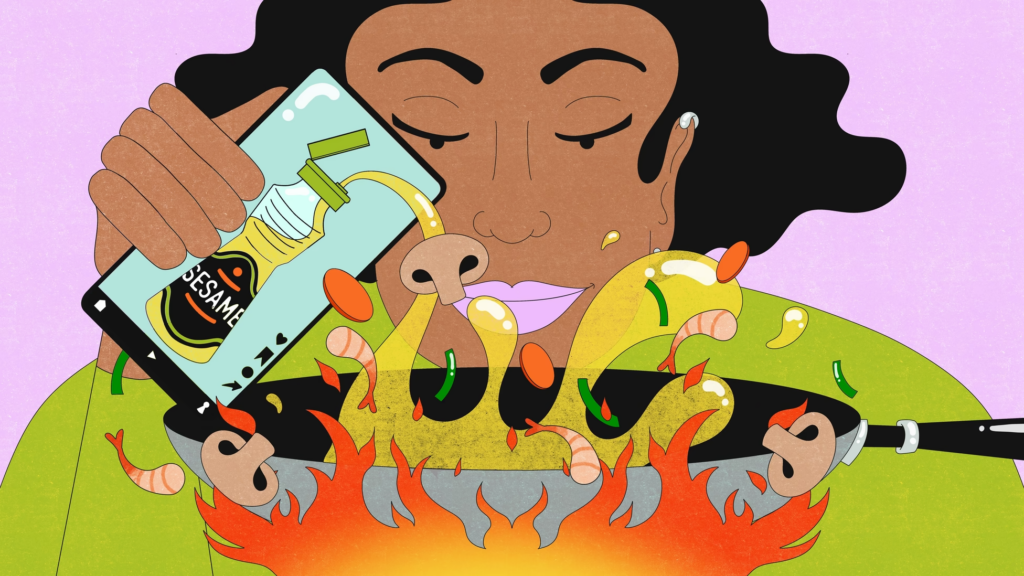Gen Z: Figuring Them Out and Luring Them In
Just four short years ago, most of our brands were still looking to optimize their communications approach with millennials. Now it seems the attention is moving to Gen Z.
Why the sudden shift?
We believe it’s a convergence of 3 factors:
- The oldest millennials turned 40 in 20221 and as a result have been deemed “uncool” by both their younger cohorts and the media, with some claiming “unlike other generations who were able to naturally drift away from coolness as they aged out of their youth, millennials have had their cool cards mercilessly snatched away…they no longer set the trends.”2
- The explosion of TikTok.3 While the popularity of the app is far-reaching, Gen Z is the dominant user,4 turning all eyes upon this emerging cohort.
- Heightened interest in market preparedness, after businesses were caught by surprise in a long-lasting pandemic and subsequent inflationary period.
Basic Gen Z Profile
Depending on the source, Gen Z represents between 20 to 30% of the population, ranging in age from 12-27 years old, and is said to be the most diverse generation. What stands out most to us are their young ages. The target is just beginning, and unless you’re marketing to children, the cohort won’t be fully comprised of adult spenders for at least a decade. To put it into perspective, one-third still live with their parents,5 and only the oldest members have full-time jobs.
The lack of spending power amongst the adult segment is currently a defining characteristic. While they want to spend, they are still largely dependent on parents,6 and “not where they want to be in life.”7 As one would expect, it influences how they shop. Frugality means that “dupes” (knockoffs, or substitutes) are considered a badge of honor,8 store brands are often perceived at parity,9 and mass retailers (especially Walmart) are where they tend to shop for groceries.10

Additionally, we’ve uncovered 7 interesting tensions amongst this younger set:
- They are digitally native and fluent, but lament their time spent online
- In social, they live staged, curated lifestyles, but they have a “High B.S. Meter” when it comes to marketing
- They are followers, ready to jump on any trend and bandwagon, but aspire to be seen (and remembered) as individuals
- They are sensitive to price, but can define value outside of it
- They are financially insecure, but express themselves through purchases
- They possess a consciousness about the plight of the world, but are burned out on being expected to save it and are shifting the burden back to brands
- They are growing into their era of responsibility, but are stunted by mental health
Food & Beverage
And now for our industry. We see:
- Gen Z beginning to embrace cooking as a means of self-expression11
- Simplicity, fun and indulgence are key consumer needs

In social conversations about food, these topics are most mentioned and growing.12
Gen Z social conversations around food:
| Food Topics | Specific Needs |
| Simplicity | Easy, convenient, quick, one pot, versatile, shortcuts |
| Fun | Celebration, nostalgia, uniqueness, connection, creative, exotic, adventurous |
| Indulgence | Comforting, cozy, relaxing, soul nourishing |
| Diet/Nutrition | Protein, carbs, fiber, iron |
| Flavors/Textures | Sweet, spicy, salty, cheese, rich Crispy, soft, creamy, crunchy, fluffy |
| Cuisines | Japanese, American, Asian, Italian |
| Occasions | Dinner, breakfast, snack, dessert |
- Also noteworthy:
- Declining conversations around “vegan/vegetarian/plant-based,” “gluten-free,” and “dairy-free”13
- Low mentions of clean, healthy, and sustainable, at less than 0.25% of social conversations in food.14 In fact, a recent study has coined the phenomenon the “say-eat gap”, where Gen Z intends to support these ideals, but instead prioritizes taste, value, and affordability.15

In social conversations about beverage, these topics are most mentioned and growing.16
Gen Z social conversations around beverage:
| Beverage Topics | Specific Needs |
| Simplicity | Easy, convenient, quick, versatile, fresh |
| Fun | Attractive, celebration, traditional, artisan, creative, unique, magical, nostalgic, whimsy |
| Indulgence | Cozy, relaxing, comforting, premium, satisfying |
| Diet/Nutrition | Alcohol-Free, caffeine, protein, vitamins, probiotics |
| Flavors/Textures | Sweet, sour, spicy, rich Smooth, soft |
| Cuisines | Italian, Asian, American, British, Spanish, Caribbean, Mexican |
| Occasions | Weekend, weekday, winter, night out, summer |
While this generation is famous for sober-curious lifestyles, when we apply the lens of conversations relative to alcohol, we note some additional growth areas:
- Fresh, and homemade experiences
- Low-calorie, low alcohol and detox nutritional needs
- Tropical, sour, and sweet tastes
- Sparkling, and thick textures
- Mexican, Latin American, and Irish cuisines
- CBD, as a replacement for alcohol, as they represent the “first generation of legal consumption age with widespread access.” In fact, the majority of Gen Z adults aged 18 to 24 prefer marijuana – and psychedelic mushrooms – to drinking.17
In summary, this is a savvy generation of up-and-comers who are in the early stages of exploration, and though they have the potential to grow into America’s next “foodies,” they are currently devoting disposable income to restaurants, especially QSR and Fast Casual.18
To reach them, social media is the obvious choice, particularly, YouTube, TikTok, Instagram and Snapchat.19 We specifically encourage you to consider social search, blogs/vlogs, social gaming,20 influencers,21 and livestreaming,22 as well as streaming media, geo-targeted, real-time exclusives,23 and product drops.24 But buyer beware. Attention spans are extra-short, building a following is extremely difficult and the chef/food blogger route pales in comparison to the influence of traditional celebrities.25
[1] “Millennials like me turned 40 this year. Everything you think you know about us is wrong,” CNN, 12/31/22
[2] “Millennial culture is deeply uncool. But one thing could save it: a rebrand,” Business Insider, 6/09/23
[3] “TikTok: Why the enormous success?” Forbes, 1/31/20
[4] “How TikTok ate the internet,” The Washington Post, 10/14/22
[5] “Almost one-third of Gen Zers are living with their parents,” Fortune, 1/07/24
[6] Experian and AtomikResearch study, Spring 2023
[7] “4 Facts About Gen Z Consumers and the Opportunities They Present for Brands,” Mintel, 2023
[8] “Gen Z is the dupe generation,” Business Insider, 12/14/23
[9] “Gen Z loves private label: report”, Supermarket News 11/21/23
[10] “Grocery Shopping With Gen Z,” Field Agent, Spring 2019 and
[11] “Let Them Cook,”, The Atlantic 12/06/23
[12] Tastewise, 2021-23
[13] Tastewise, 2021-23
[14] Tastewise, 2021-23
[15] “Gen Zers are exhausted, stressed about their food decisions,” FoodNavigator, 8/16/23
[16] Tastewise, 2021-23
[17] “What do Zoomers Like? Pot or Shrooms, Not Booze,” Bloomberg, 5/31/22
[18] “Gen Z eats fast food like no other generation. From a love for spicy food to constant snacking, these are 8 traits that define their dining habits,” Business Insider, 8/17/23
[19] “Gen Z Statistics,” glog.hootsuite.com, 8/30/22
[20] “Gen Z Global Report,” GWT, 2022
[21] “Insider Intelligence,” 12/18/23 and “Gen Z relies on influencers for purchase decisions, Kantar says”, Mobile Marketer, 3/02/20
[22] “Gen Z Social Media Report,” Knit, 2022
[23] “Generational Shifts in Marketing Preferences,” Data Axle, 2021
[24] “Brand Discovery in Gen Z: A Convo With The Digital Fairy,” Forbes, 11/16/22
[25] “Gen Z Social Media Report,” Knit, 2022

